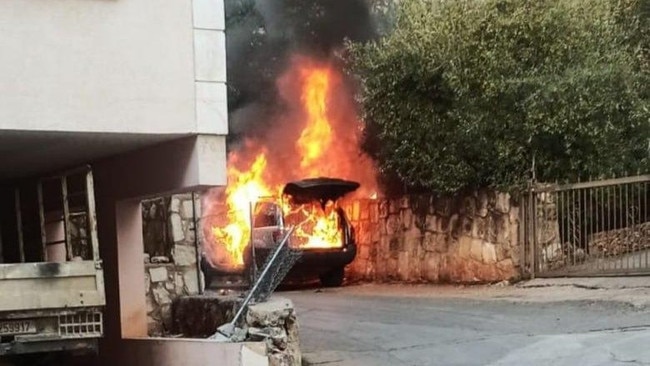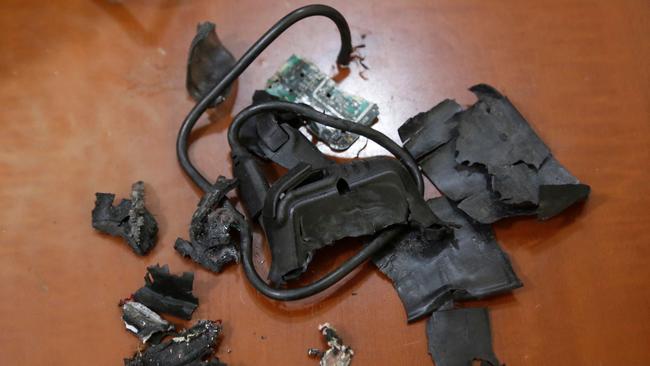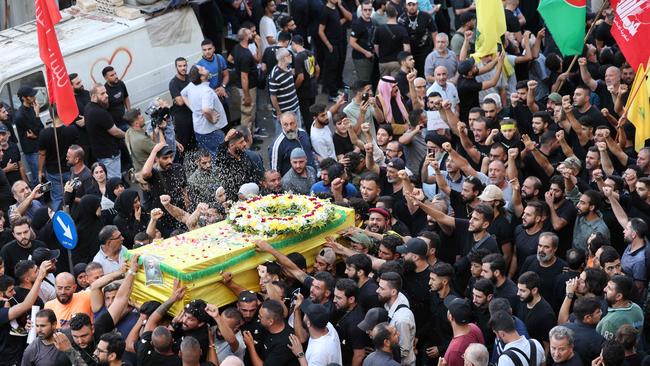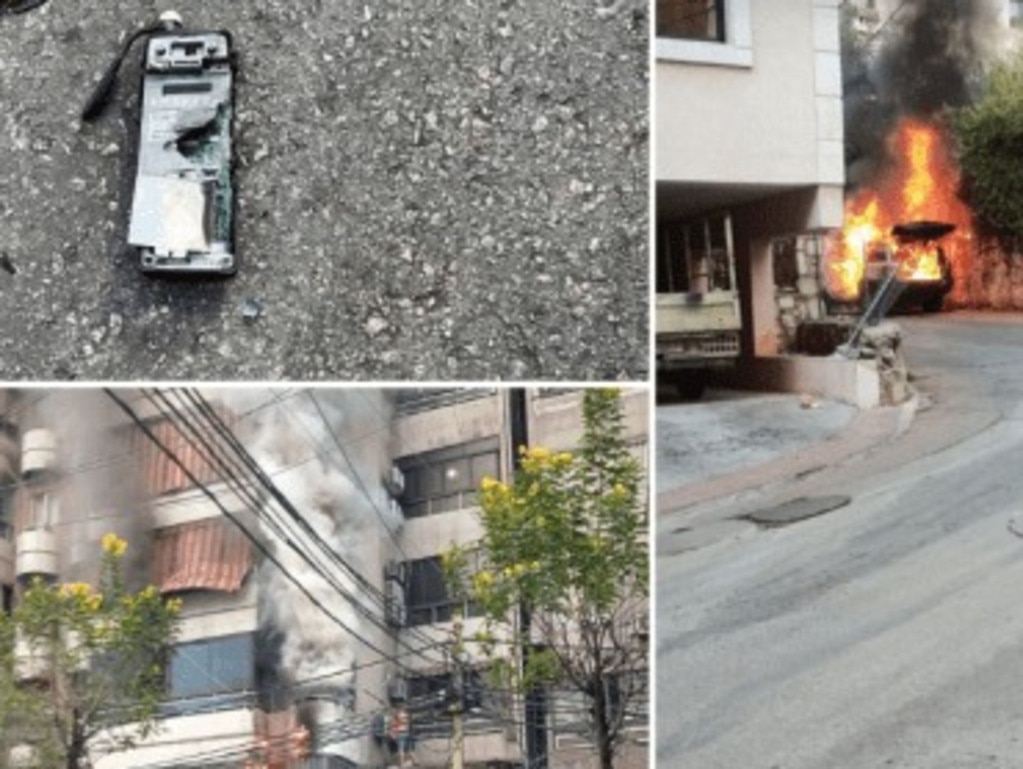
The second series of deadly explosions targeted at Hezbollah in Lebanon on Wednesday, this time through exploding walkie talkies, coincides with Israel’s declaration that “a new era” in its war effort had begun. By this, Israel means that it has now turned its gunsights northward towards Hezbollah.
The latest explosive attacks follow the astonishing mass explosion of Hezbollah pagers on Tuesday that badly injured at least several thousand Hezbollah fighters and operatives.
The aim of Israel’s stepped-up campaign against Hezbollah is fundamentally a defensive attempt to create the conditions for some 60,000 displaced Israelis to return to their home near the country’s northern border with Lebanon. Israel does not want to invade or take over Lebanon but it does want to prevent Hezbollah from using Lebanese territory to hit those homes in northern Israel.
These communities were forced from their own homes almost a year ago after Hezbollah stepped up its missile and drone strikes on northern Israel immediately after the Hamas massacre of Israelis on October 7 last year.
Israel has reluctantly tolerated this extended evacuation of its own people from their homes because it has needed to keep its military focus on the more critical task of defeating Hamas in Gaza.
Now, 11 months on, Hamas has been crippled and no longer exists as a coherent fighting or governing force in Gaza. This allows Israel to redeploy many of its forces from Gaza to the north to challenge Hezbollah and create the conditions for its residents to return to their homes.
Israeli Prime Minister Benjamin Netanyahu vowed on Wednesday to “return the residents of the north securely to their homes, and that is exactly what we will do”. Israel’s war cabinet this week made the return of Israelis in the north an official part of their war aims.
This means that Hezbollah can expect a lot more pain from Israel in the weeks and months ahead than it has previously endured.

Israel’s strategic aim is to either persuade or force Hezbollah to cease its low-level missile and drone attacks on northern Israeli, which have occurred on an almost daily basis for the past 11 months. These cross-border attacks have to stop before Israelis can safely return to their homes.
Israel will be hoping that the mass explosion of Hezbollah pagers and walkie-talkies will shock the terror group, and its Iranian masters, to refrain from further attacks on Israel.
Certainly the remote control attacks have stunned Hezbollah, and robbed it of thousands of fighters and communications at this critical time.
But it is doubtful that these attacks alone would stop the well-armed terror group, especially when it has vowed to retaliate.

Hezbollah has been reluctant to trigger a full-scale war with Israel, knowing that it would ultimately be all but destroyed if Israel chose to launch a large ground invasion.
Yet if it chooses to keep antagonising Israel with constant low-level attacks, it risks provoking a much larger military response from Israel.
The question facing Israel is how will it force Hezbollah to stop its cross-border attacks if this pager attack does not persuade it to do so?
Israel can dramatically lift its airstrikes on Hezbollah targets in southern Lebanon in the hope of degrading them enough to stop the attacks, but this method would be far from foolproof.
Or else it could launch a ground invasion into southern Lebanon, as it did in 2006, in the hope of clearing Hezbollah out of that part of the country. This would risk heavy casualties on both sides, including civilians.
There is no perfect solution, yet Israel is rightly determined to ensure that its citizens can return safely to their homes in the north. This means that its confrontation with Hezbollah is only going to grow.







We are now seeing a critical shift in the focus of Israel’s war against Islamic terror from defeating Hamas in Gaza to tackling the Iranian-backed Hezbollah terror group in Lebanon.